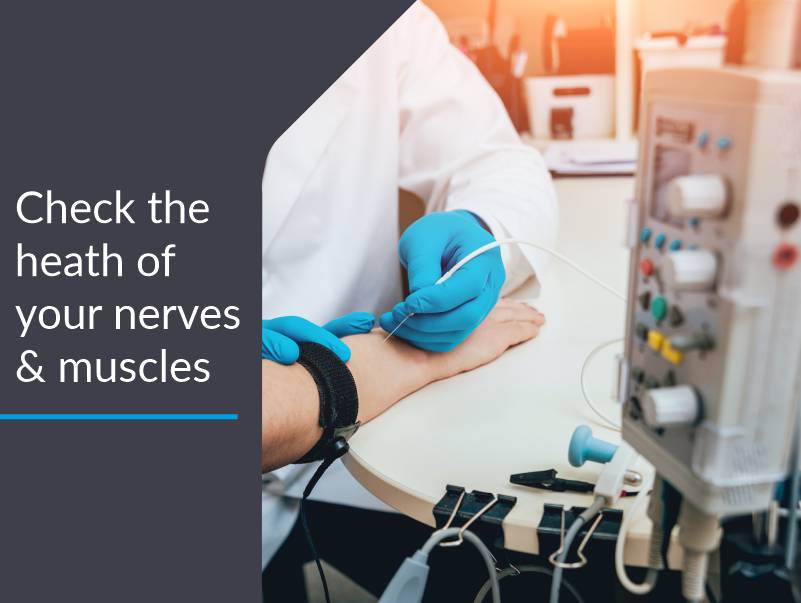Nerve Conduction Velocity or NCV is a medical test that assesses nerve damage and dysfunction. It's a procedure that measures how quickly electrical signals move through your peripheral nerves .
WHY IS AN NCV PERFORMED?
- It helps the doctor to differentiate between an injury to the nerve fibre and an injury to the myelin sheath, the protective covering surrounding the nerve.
- It will also help your doctor to identify the difference between a nerve disorder and a condition where a nerve injury has affected the muscles.
- In cases where a person is suffering from muscular and neuromuscular disorders such as Guillain-Barre syndrome, carpal tunnel syndrome, Charcot-Marie-Tooth (CMT) disease, herniated disk disease, chronic inflammatory polyneuropathy and neuropathy, sciatic nerve problems and peripheral nerve injury.
- The NCV test is also useful in case of a pinched nerve.
HOW IS THE NCV TEST PERFORMED?
- Before the test, you should inform the doctor if you are an alcoholic.
- Use of certain neurologic medications, such as muscle relaxants, opioids, or psychotropic medications and if you have diabetes, hypothyroidism and systemic diseases.
- Also, you are not allowed to apply any cream or lotions on the skin to avoid any problems during the test
- Before the NCV test, you will be asked to remove any metal accessories if you are wearing any and will be given a gown to wear during the test.
- The doctor will ask you to sit or lie down and then will find the nerve to be tested
- Monitor activity during brain surgery
- A jelly-like substance will be applied on two points of your skin, one that stimulates the nerve and the other that records the stimulation. The doctor then places the electrodes on these two points
- The nerve will be simulated by a mild and brief electrical shock that is produced from the electrodes
- The NCV test takes 20 to 30 minutes, leaving an uncomfortable yet painless sensation
